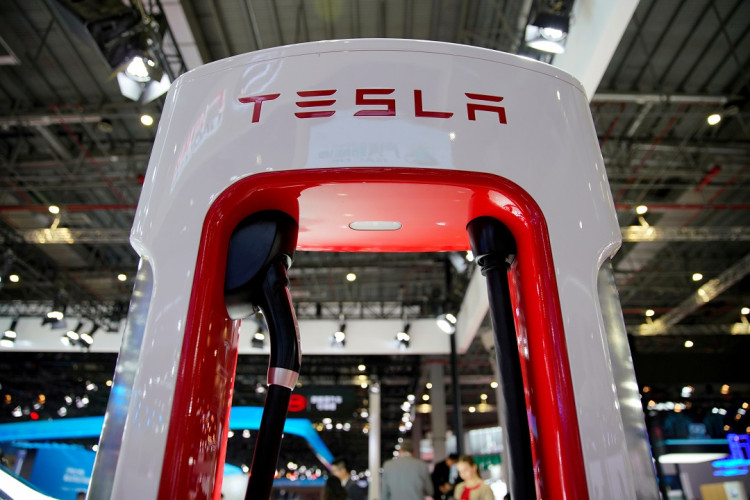Electric carmaker Tesla intends to build up to 4,000 supercharging stations in China before the year ends. The company's Chinese unit made the bold announcement late last week after it unveiled a third-generation supercharging station in Beijing. The V3 supercharger in Beijing is the third of its kind installed in mainland China.
The launch of the next-generation charging pile in Beijing is part of Tesla's continued efforts to enhance its charging infrastructure in its largest market outside of the United States. With the sales of its China-made Tesla Model 3 vehicles continually ramping up, Tesla is accelerating the development of its supporting infrastructures.
The electric carmaker currently has more than 2,500 supercharging stations in China with an additional 2,400 destination charging piles. The company is aiming to roughly double that number before the year ends.
Tesla China commemorated the installation of its V3 supercharger in Beijing with a post on Twitter, proclaiming its intention of putting up more of the new charging piles in other Chinese cities. Tesla likely chose to install its latest supercharging station in Beijing as it does have the most registered vehicles among all other Chinese cities. The Beijing government has also made its goal of promoting green energy very clear, particularly after it declared that it will be banning all fossil-fuel-powered vehicles by 2030.
Tesla's new V3 superchargers provide significantly quicker charging times compared with its predecessor. The rapid charging system features a completely new architecture. At peak efficiency, a single V3 supercharger can charge a base Model 3 in just 15 minutes, providing the vehicle with a range of 200 kilometers. Tesla estimates that using its new superchargers should cut waiting times by an average of 50 percent.
The installation of the new charging piles also comes as Tesla ramps up its expansion efforts for its Gigafactory in Shanghai. The company is currently busy with upgrading and retooling the facility as preparation for the mass production of its latest Model Y fully-electric crossover vehicle. Both Model Y and Model 3 vehicles are intended to be mass-market electric cars that are priced reasonably for middle- to high-income buyers.
Upgrading its charging infrastructure in one of its most important markets will be vital to ensure Tesla's success in China. With its growing sales and the upcoming arrival of new models such as its Cybertruck electric pickup and its electric Semi, Tesla will have to double down on its efforts to accommodate a larger amount of vehicles.






